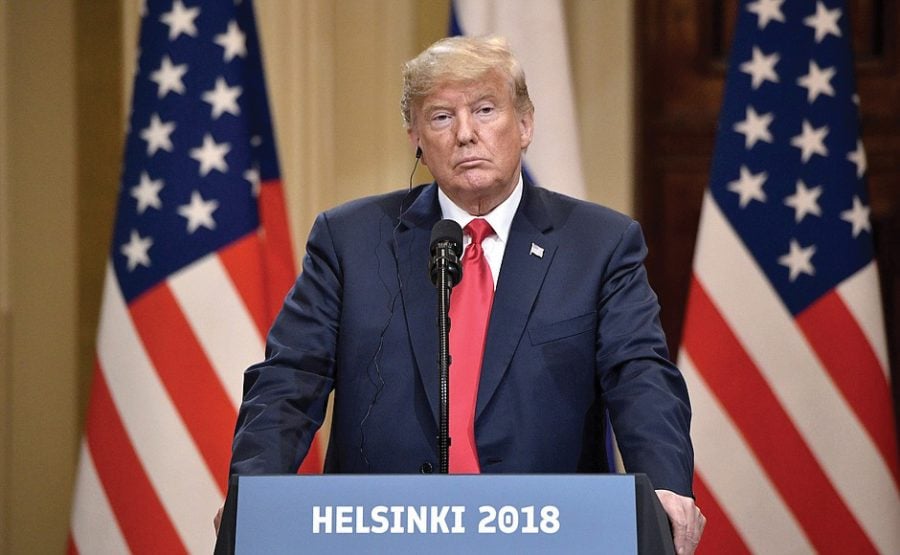U.S. drops from I.N.F. Treaty
Just weeks after the announcement that President Donald Trump has come to an agreement with Canada and Mexico to replace NAFTA, he has sparked outrage once again by stating his intentions to withdraw from yet another international agreement. His latest target is the Intermediate-Range Nuclear Forces Treaty (I.N.F. Treaty).
The I.N.F. Treaty is an arms control agreement signed in 1987 by former President Ronald Reagan and General Secretary Mikhail Gorbachev of the Soviet Union. The treaty banned all land-launched missiles with ranges of 310 to 3,420 miles and in doing so played a key role in ending the Cold War nuclear arms race.
In recent years, the I.N.F Treaty has come under fire with both nations trading accusations that the other is in violation of the agreement. The Obama administration suspected that Russia was secretly developing a banned cruise missile as early as 2014, though it did not take further action on the subject. Now, however, Trump has said that he intends to take action and is currently preparing to formally withdraw from the treaty in response to alleged Russian violations.
“If the United States does withdraw from the treaty it would be a huge disaster,” said Professor of Political Science George Guo. “Russia has said that they will respond, and they have the capacity to make more nuclear warheads.”
Many European nations, most notably Germany, have urged Trump to reconsider his decision. Germany has stated that it is not ready for a new arms race and will fight to keep the treaty intact.
“Russian nuclear missiles would be a nightmare for Europe,” Guo said. “Russia can destroy all of Europe within minutes because all of Europe is within range of Russian missiles equipped with nuclear warheads.”
Early College student Derek Chen agreed.
“If Trump does withdraw from the treaty it could lead to the continued development of weapons powerful enough to destroy entire cities with basically no warning whatsoever,” Chen said. “Is that really what we want?”
Trump is likely also concerned with the buildup of Chinese nuclear weapons in the Pacific. Because it is not a signatory to the I.N.F. Treaty, China has continued development of intermediate-range cruise missiles.
“The U.S. also thinks that China has taken advantage of this treaty because it is not a part of it,” Guo said. “They have developed a lot of medium range missiles which are very much a threat to American interests.”
Although Trump may have legitimate concerns regarding the validity of the I.N.F. Treaty, Guo warned that the U.S. needs to tread carefully in how it handles this situation.
“I understand the American position,” Guo said. “But I would say that the U.S. really needs to think this through. It would open the door for a nuclear arms race.”
Early College student Jayraj Jonnalagadda expressed similar concerns.
“We need to learn from the mistakes of the past,” Jonnalagadda said. “Are we really ready for another nuclear arms race between global superpowers dead set on proving their dominance?”









